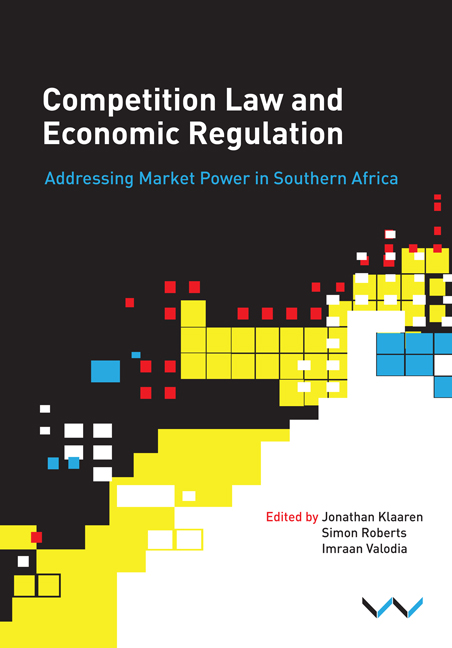 Competition Law and Economic Regulation in Southern Africa
Competition Law and Economic Regulation in Southern Africa Book contents
- Frontmatter
- Contents
- Tables, figures and boxes
- Acknowledgements
- Acronyms and abbreviations
- Introduction: The development of competition and regulation in southern Africa
- Part One Cartel law enforcement
- Part Two Issues in competition and regulation
- Part Three Competition and regulation in reshaping African markets
- 6 How multinational investments in grain trading are reshaping Zambia's market
- 7 Competition and incumbency in South Africa's liquid fuel value chain
- 8 South Africa's renewable energy experience: Inclusive growth lessons
- 9 Competition and regulation in Zimbabwe's emerging mobile payments markets
- 10 Evaluating the competitiveness of Zimbabwe's poultry industry
- Part Four Conclusion
- Contributors
- Index
7 - Competition and incumbency in South Africa's liquid fuel value chain
from Part Three - Competition and regulation in reshaping African markets
Published online by Cambridge University Press: 23 March 2018
- Frontmatter
- Contents
- Tables, figures and boxes
- Acknowledgements
- Acronyms and abbreviations
- Introduction: The development of competition and regulation in southern Africa
- Part One Cartel law enforcement
- Part Two Issues in competition and regulation
- Part Three Competition and regulation in reshaping African markets
- 6 How multinational investments in grain trading are reshaping Zambia's market
- 7 Competition and incumbency in South Africa's liquid fuel value chain
- 8 South Africa's renewable energy experience: Inclusive growth lessons
- 9 Competition and regulation in Zimbabwe's emerging mobile payments markets
- 10 Evaluating the competitiveness of Zimbabwe's poultry industry
- Part Four Conclusion
- Contributors
- Index
Summary
INTRODUCTION
There is an ongoing debate in South Africa regarding the transformation of the liquid fuel sector value chain, which has historically been controlled by a handful of large multinational oil companies. The petroleum sector is strategic in terms of its wider impact on consumers, as a provider of inputs into other productive sectors of the economy and as an important influence on the trajectory of economic development. In South Africa, the sector benefited from substantial investments and support from the apartheid government for security of supply and national security reasons, particularly in light of widespread sanctions in the years prior to the democratic transition in 1994. A favourable policy environment over the years has created a sector characterised by a handful of large fuel-importing oil companies with refining capacity in strategic port locations, as well as a national champion, Sasol, producing fuel inland. Importantly, all of the incumbent firms exhibit high levels of vertical integration into activities spanning the entire value chain, including importing, refining, production, distribution and retail.
Following the democratic transition, greater emphasis began to be placed on transforming the sector to be more inclusive at different levels of this value chain, culminating in the attachment of the Liquid Fuels Charter as an addendum to the Petroleum Products Act (No. 120 of 1977). The entry and growth of new, independent wholesalers as part of this process of transformation is of particular importance, as distribution and retail are the activities in the value chain with the lowest level of capital requirements for entry. With time, the goal should be to allow entrants at the wholesale level to develop capabilities that allow for their gradual migration up the value chain, creating competition with the incumbent oil companies.
These goals around transformation are not only important for their own sake. They fit within the context of a growing global body of literature on the significance of inclusive economic growth and broadening economic participation. A central component of achieving this increased participation is removing structural and strategic barriers to new entry at different levels of the economy (see Ianchovichina and Lundstrom, 2009; Spence, 2008).
- Type
- Chapter
- Information
- Competition Law and Economic Regulation in Southern AfricaAddressing Market Power in Southern Africa, pp. 172 - 188Publisher: Wits University PressPrint publication year: 2017


